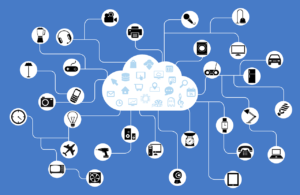
Greasing the Wheels for Data Monetization

(Varunyuuu/Shutterstock)
“Data is a critical asset to business success.” That’s probably the closest thing to a self-evident truth you’re likely to find in today’s ultra-competitive business landscape. We all know how important data is. Those who have more of it, and know how to wield AI and advanced analytics upon it, have a substantial advantage. And yet, businesses face headwinds when trying to monetize their data, particularly outside their company. That’s why, when it comes to data monetization, we are still in the early stages of the game.
Doug Laney has dedicated a portion of his career to finding methods to break down the value behind data. His data valuation journey started after the Twin Towers came tumbling down on 9/11. The loss of life was tragic, but companies also lost enormous amounts of data. Insurance companies claimed that data had no value, hence Laney’s study of “Infonomics” was born.
Twenty years later, after a stint as a Gartner analyst Laney continues to study the nature of data at the business consulting firm West Monroe. He helps clients come up with strategies for managing data like the real asset that it is, and finding ways to use it for competitive advantage.
“The economic differences of data versus other kinds of assets is tremendous,” Laney says. “People call data the new oil, but that’s not at all accurate. You can only use a drop of oil one way at a time. Once you use it, it’s gone. And using oil doesn’t create more oil. But data is what economists would call a non-rivalrous, non-depleting, regenerative asset. Companies that understand the economic differences of data are really well positioned to capitalize on it.”
The biggest companies in the world certainly have figured that out. Amazon, Google, and Facebook ostensibly are considered technology giants, but Laney doesn’t like that description at all. “They’re data companies,” he says. “They’re making their value out of data, not technology. To continue to call these companies technology companies, is not only wrong, it’s distracting from who they actually are.”
Data isn’t visible to the naked eye, so it can be difficult to see data companies in the real world. Take airlines, for example. You might think that United Airlines and American Airlines are valuable in part because of the large airplanes they own.
But when United and American went to get COVID-19 relief loans to help them through the pandemic, the banks weren’t interested at all in using big jets as collateral. They wanted their data, in the form of MileagePlus and AAdvantage.
“They’re much more data companies than anyone realizes,” Laney says. “We think that they own planes, and partially own airports, or whatever. They own gate rights and they own customer data. That’s it.”
Recognizing that data has value, and actually realizing that value, are two separate things. It’s important for business leaders to take a hard look at the data assets they have, and try to discover what that value is. Laney has created models, based on longstanding accounting methods (i.e. the cost approach, the market approach, and the income approach) that can help companies put an actual dollar value to their data.
But coming up with a dollar figure is the easy part. It’s arguably much more difficult to find a business model that allows a company to easily extract that value from the data. That’s due in part to the nature of that value, or what somebody else is willing to pay for the data. Creating these networks that allow data monetization to happen is not easy, and new data privacy regulations make it harder.
“A decade ago, there was more of a focus on using any given data asset for some operational purpose, like we’re going to use our customer data to help us sell more, and then maybe some analytics purpose, like we’re going to report on it, so create some pretty pie charts, some bouncy bar charts, or dashy dashboards,” Laney says.
“I think there’s more a realizing that you have to put data to work more than that, and that’s where folks get interested in doing more diagnostic or predictive or prescriptive kind of analytic with data,” he continues. “But also now, [companies] are looking at ways of sharing data with stakeholders throughout their extended business ecosystem. So their suppliers, their partners, their partner’s suppliers, their suppliers partners, their customers’ suppliers, their customer’s customers – there’s this extended business ecosystem for any business.”
However, new laws like the European Union’s GDPR and the California Consumer Privacy Act (CCPA) can put a kink in these data monetization plans. One way that companies are getting around these restrictions is by selling a partner’s goods or services to one’s own customers, rather than selling data about one’s customers to that partner.
“For example, we’re working with a hospital who knows who its diabetes patients are, but it can’t sell that information, obviously due to HIPAA and all sorts of regulation,” Laney says. “But they can introduce their diabetes patients to other products and services, like at-home glucose monitoring kits or healthy meal plans or gym memberships, or Peloton, then take a referral fee or a commission on that.
“So it’s a way to monetize your customer data without ever having to expose who your customers are,” Laney continues. “I think a lot of…business leaders tend to be really short sighted about the potential to maize their customer data because they say, ‘Oh, we can’t sell our customer data. End of story.’ Well, that’s pretty narrow minded.”
With a little creative thinking, companies can find new ways of monetizing their data. When Laney holds workshops with companies, he typically comes up with 30 to 40 ideas to generate value from their data, either internally or eternally. When that business creativity is paired with a rigorous data valuation process, the benefits can be large.
“There’s the old adage, ‘You can’t manage what you don’t measure.’ And because most companies are not measuring their data–they’re not measuring its quality characteristics, they’re not measuring it’s utility, they’re not measuring its relevance to the business processes that they run or manage– because they’re not measuring the value of data, they’re in a poor position to manage it like an asset. And any asset that you’re not managing well is one that you’re not going to be able to monetize well or generate value from.”
Data exchanges have the potential to help companies get value from data—either by selling their own data or by buying someone else’s. The cloud providers are well situated to capitalize on the data monetization trend. Amazon Web Services is a good example of this, as it launched its data exchange in late 2019 and today has more than 180 data providers furnishing more than 2,700 different data products.
According to Stephen Orban, the general manager of AWS Data Exchange, all of the folks involved in a data transaction–the data buyers (or subscribers) and the data sellers (or providers)–benefit by having a centralized place to conduct business.
“The first thing we hear, primarily from enterprise, data scientists, and academics, is there’s no one good place to find lots of diverse data, particularly across domains,” he says. “A lot of customers say they’ve spent a lot of time trying to find the stuff that they need to power their analytics, and then rooting around how they’re going to use it.”
Data exchanges like AWS’s are growing because they bring standardization and automation to data processes. Manual data movement techniques, including mailing DVDs and hard drives, are still widely used. One insurance company that Orban worked with has a 25-person FTP team that does nothing but manages file transfer infrastructure.

AWS is in a position to eliminate some of the technical and process-oriented hurdles to data monetization with its Data Exchange
Data providers benefit by reaching a wider pool of potential customers. Not every organization is going to become a Dun & Bradstreet or a Thompson Reuters. However, many organizations are sitting on data that has real value to others, but getting the data into their hands is too hard.
“This is particularly for customer who believe they have value and believe it may be valuable to somebody else, but it’s just too hard to monetize it,” Orban said. “If it’s not part of their core business, the lift to try to do that, is just too high. So oftentimes they don’t even bother.”
Data exchanges have not had a great track record to date. In addition to AWS, the cloud data warehousing company Snowflake considers a data exchange to be a core part of its mission. There is so much data being generated today, and the potential value of this data to businesses is enormous, so it would seem that the orderly exchange of data in a marketplace setting would be a winning endeavor. Only time will tell.
One thing is for certain, however: data consumption will only increase. “Customers have an insatiable appetite for more data and more sources, so it’s hard to imagine we’ll ever be done adding data providers and additional sources to the exchange to facilitate that,” Orban said. “We are very much at day one of this journey and just getting started.”
Related Items:
The End of the Data Broker Model and the Rise of the Data Marketplace
Taking the Pain Out of Buying and Selling Data





























